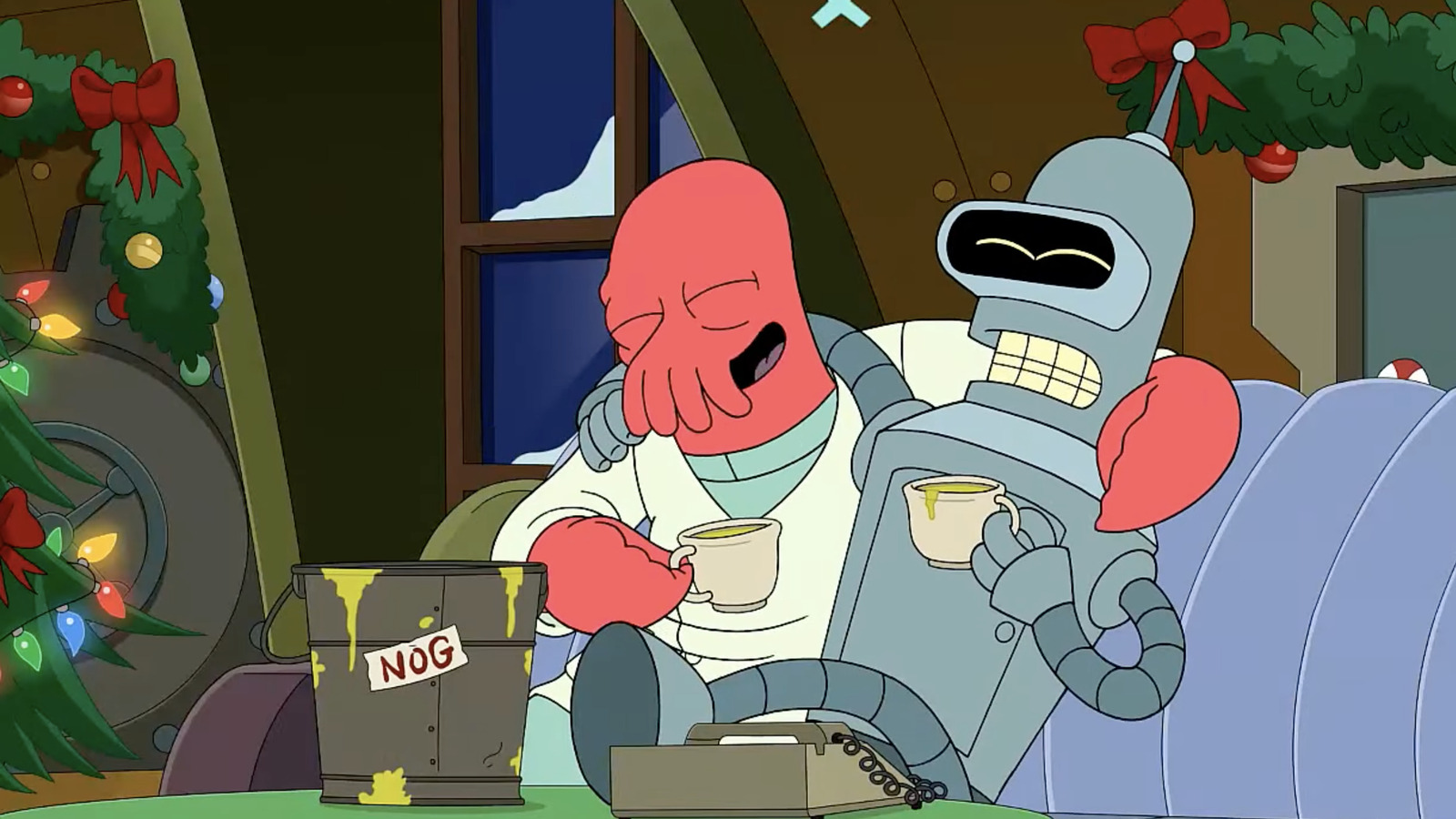“The Late Philip J. Fry” has a double meaning. Due to Bender’s noisiness, Fry sleeps in, arriving late to both work and his lunch date with Leela. He promises to make it up to Leela with a dinner date, but due to his tardiness, he’s stuck testing Professor Farnsworth’s latest invention with Bender. Said invention is a time machine, but one that only goes forward in time so its users can’t muck up the past. The Professor’s clumsiness sends the trio to the year 10,000 AD. With no way of going back, they’re declared dead in the present.
The trio decides to keep going further into the future to find someone who has invented a backwards time machine. These attempts only bring them to the desolate year 1 Billion, so they decide to sit back and watch the universe die. Then it hits them — “it” being a second Big Bang.
In “Futurama,” time is cyclical; after every Big Crunch, the universe restarts and proceeds exactly like the previous one did. They end up having to go around twice due to Farnsworth missing the mark, again, but they eventually return to 3010 and crush their duplicates (what “Rick and Morty” did, “Futurama” did first”). Fry makes his date with Leela and promises from now on, he’ll never be late again because “[the old Fry] is dead now.” The end.
Why is the episode beloved? It’s the most innovative episode of its season, not relying on either current events or previous episodes. It also has the right mix of humor and heart that makes “Futurama” special. Take the montage of the time-traveling trio arriving in increasingly absurd futures, set to the musical Zager and Evans parody “In The Year 252525.” This hilarity is in the same episode as Leela discovering the truth about Fry’s disappearance and leaving a love message for him carved in stalagmites.
